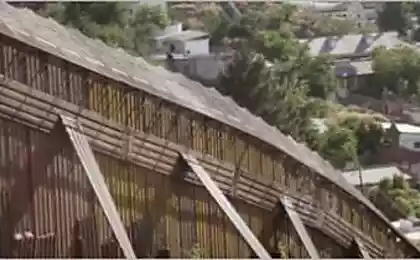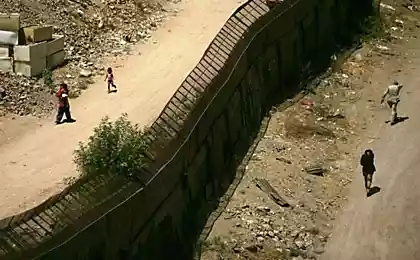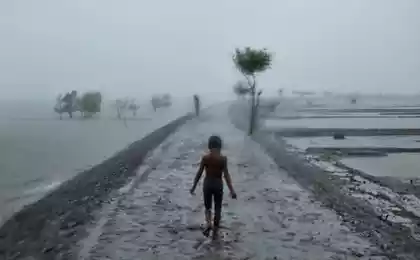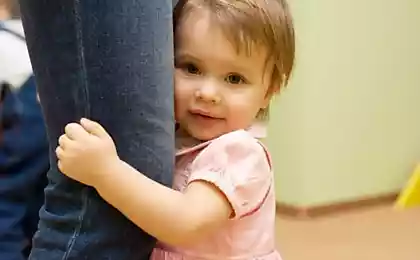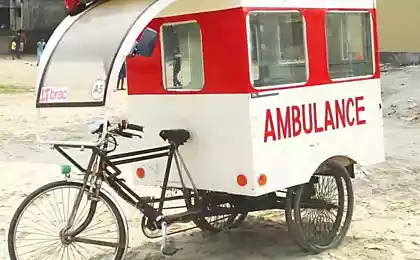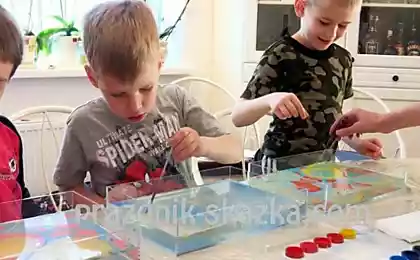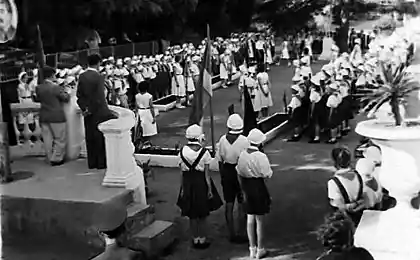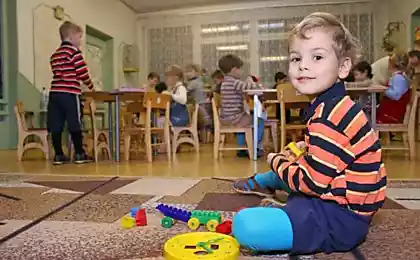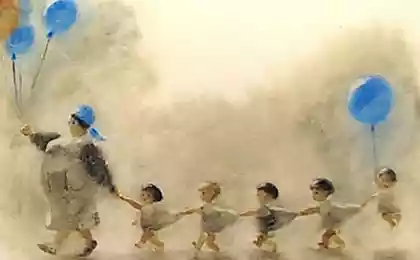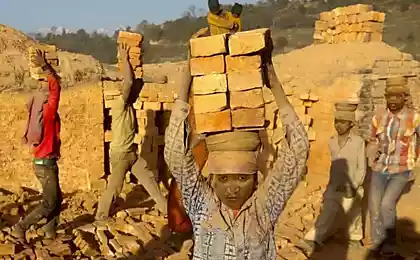1657
Child labor in Bangladesh (15 photos)
In the world of labor is used 165 million. Children aged 5 to 14 years, of which 74 million. Engaged in work that may be dangerous. Compared to other continents, child labor is most heavily used in Asian countries. Despite the fact that over the past six years, the number of minors working here fell by almost 5 million. People still 122 million. Children and adolescents aged 5 to 14 years are engaged in commerce or in the production. Among the "leaders" in the use of child labor are such countries as Nepal, Afghanistan, Pakistan, India, Sri Lanka and Bangladesh.
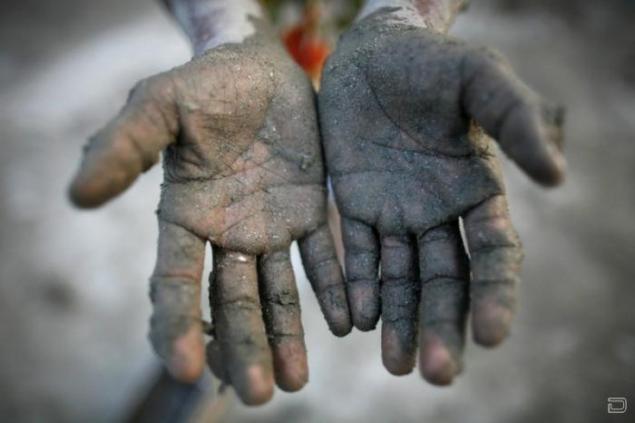
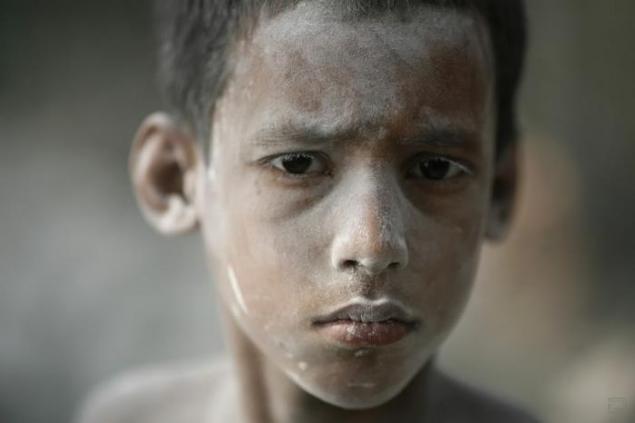
Extreme poverty and economic difficulties are forcing Bangladeshi children to look for work to help their families. (REUTERS PICTURES)
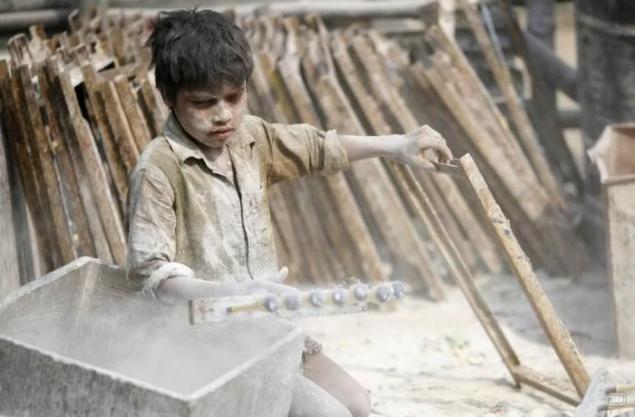
According to the report of the UN Children's Fund (UNICEF), 33 million children under 18 living in Bangladesh, which is about 56 per cent of the child population currently live below the international poverty line, which is defined as income in the $ 1. US per person per day. (REUTERS PICTURES)
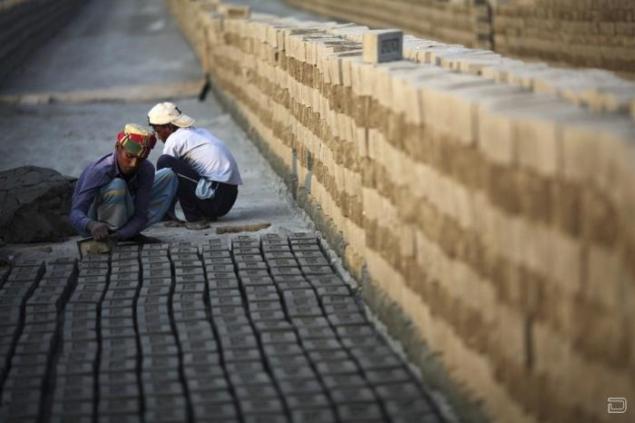
In the picture - underage workers brickworks spread bricks for drying. Bricks are made by hand here. (REUTERS PICTURES)
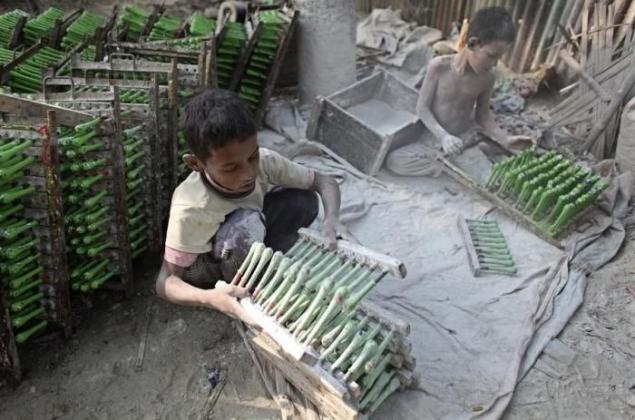
The total population of Bangladesh is 140 million. People; 63 million., Or 44 percent of the total population are children. In the picture - the children working in the studio for the production of balloons in Kamrangir Char on the outskirts of Dhaka, capital of Bangladesh. (REUTERS PICTURES)
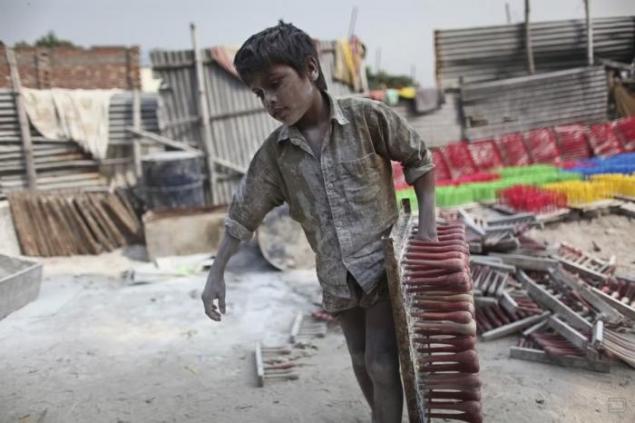
Bangladesh - a country where child labor is used more than anywhere else. In Bangladesh, children between the ages of ten and fourteen who work are 30, 1%. (REUTERS PICTURES)
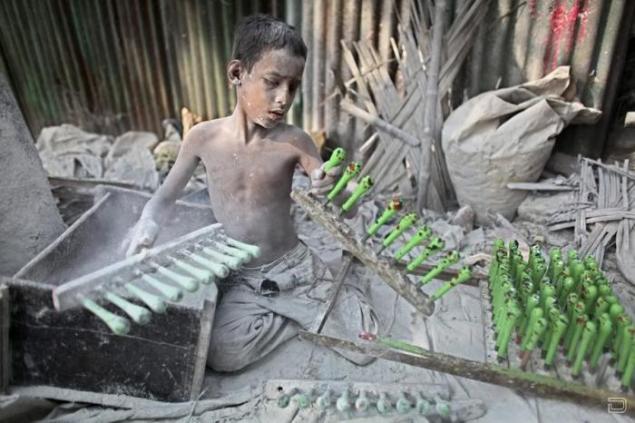
Children often during the holidays, and sometimes skipping classes during the school year, are engaged in a dirty and hard work. (REUTERS PICTURES)
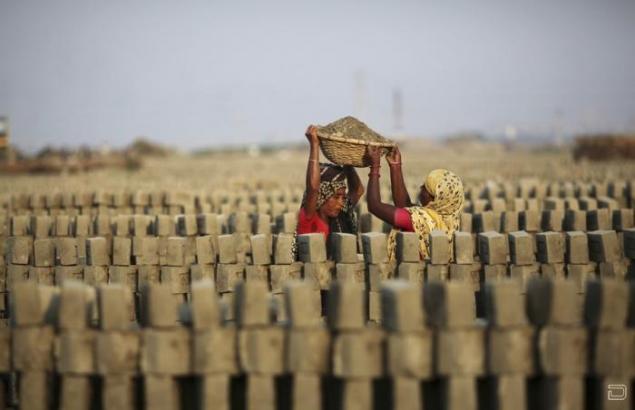
Some of the children are forced to leave school to continue to work and help their families cope with poverty. In the picture - the production of bricks. (REUTERS PICTURES)
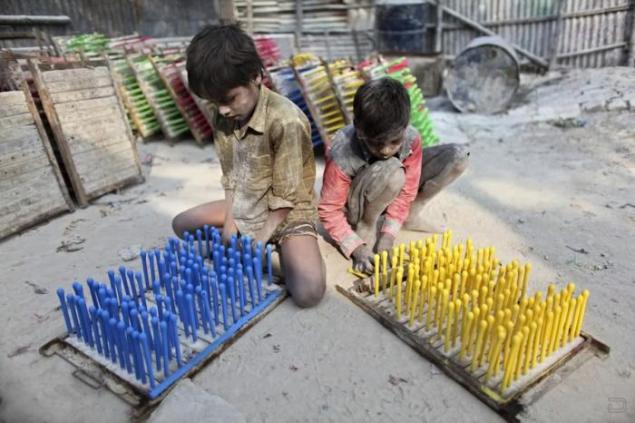
Exploitation of child labor in most cases due to the fact that even those parents who want to send their children to school, often can not afford it. (REUTERS PICTURES) 9) As a result, children are sent to work in the fields, factories, and even in the mine. (REUTERS PICTURES)
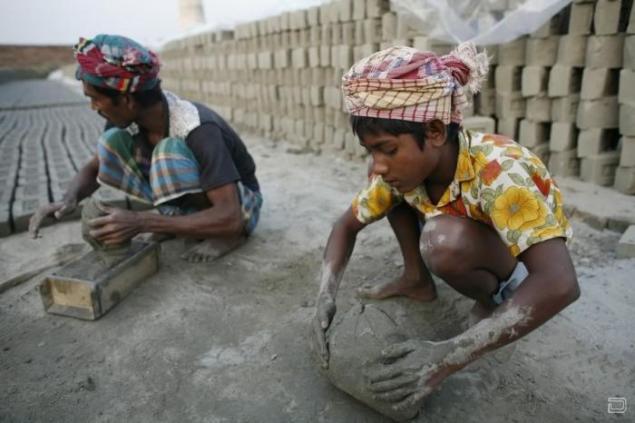
Nearly 50 percent of elementary school students in Bangladesh throw up their studies before the end of 5th grade. (REUTERS PICTURES)
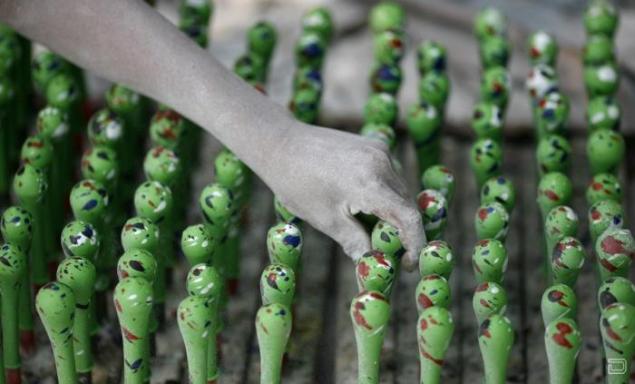
Such high rates are due to the poor quality of public primary education, low levels of literacy of the adult population, low level of awareness about the importance of education. (REUTERS PICTURES)
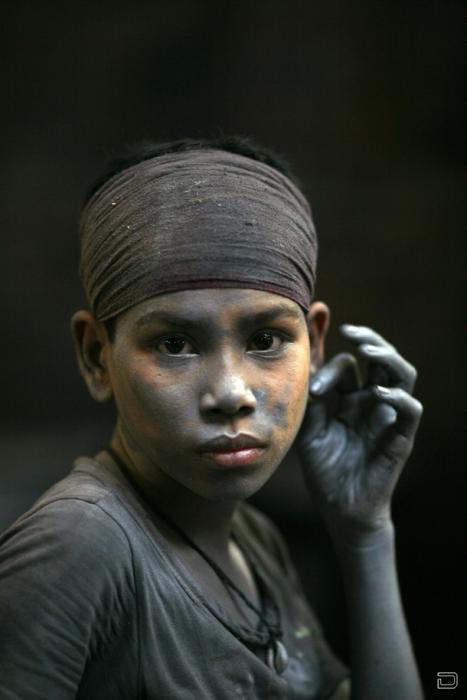
As a result, child labor in Bangladesh is more than 12 percent of the total workforce. (REUTERS PICTURES)
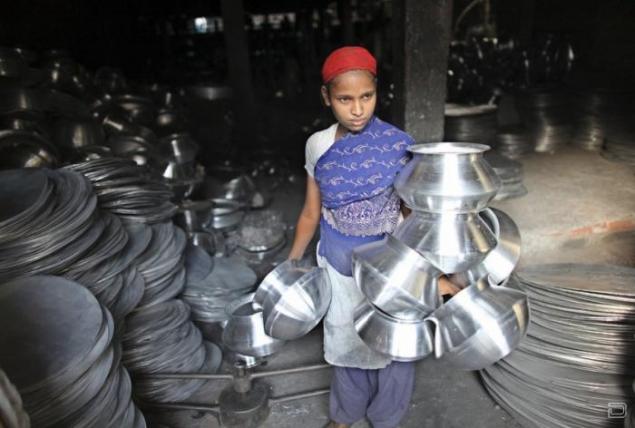
About 25 children working at the factory aluminum products in Dhaka. (REUTERS PICTURES)
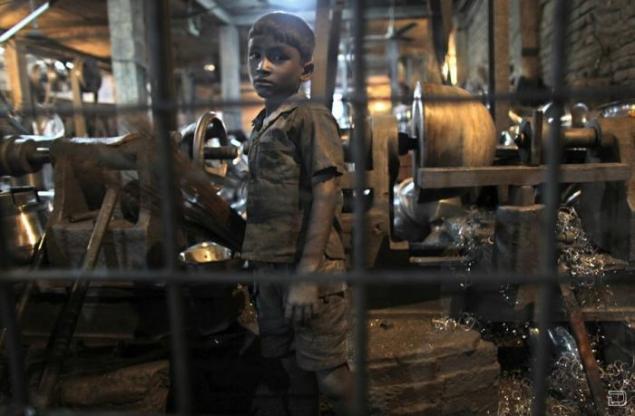
They are 12 hours a day and receive for their work 60 taka ($ 1, 70) a day. (REUTERS PICTURES)
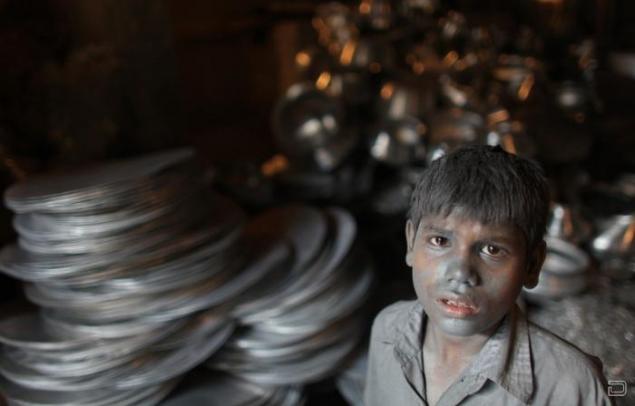
In Bangldadesh society as a whole because of traditions it has a rather indifferent attitude to the problem of child labor. (REUTERS PICTURES)
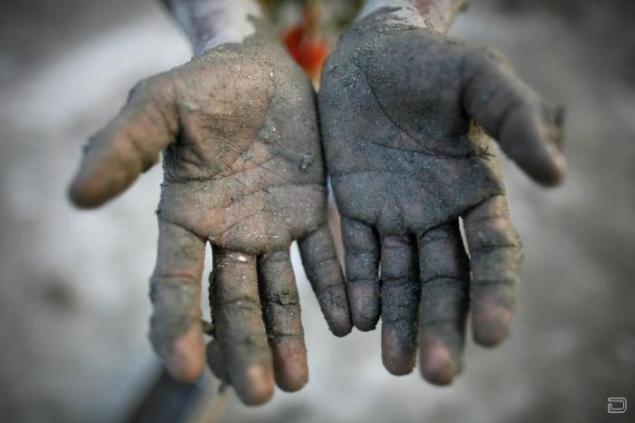
Millions of children are deprived of their childhood Aziii (REUTERS PICTURES)


Extreme poverty and economic difficulties are forcing Bangladeshi children to look for work to help their families. (REUTERS PICTURES)

According to the report of the UN Children's Fund (UNICEF), 33 million children under 18 living in Bangladesh, which is about 56 per cent of the child population currently live below the international poverty line, which is defined as income in the $ 1. US per person per day. (REUTERS PICTURES)

In the picture - underage workers brickworks spread bricks for drying. Bricks are made by hand here. (REUTERS PICTURES)

The total population of Bangladesh is 140 million. People; 63 million., Or 44 percent of the total population are children. In the picture - the children working in the studio for the production of balloons in Kamrangir Char on the outskirts of Dhaka, capital of Bangladesh. (REUTERS PICTURES)

Bangladesh - a country where child labor is used more than anywhere else. In Bangladesh, children between the ages of ten and fourteen who work are 30, 1%. (REUTERS PICTURES)

Children often during the holidays, and sometimes skipping classes during the school year, are engaged in a dirty and hard work. (REUTERS PICTURES)

Some of the children are forced to leave school to continue to work and help their families cope with poverty. In the picture - the production of bricks. (REUTERS PICTURES)

Exploitation of child labor in most cases due to the fact that even those parents who want to send their children to school, often can not afford it. (REUTERS PICTURES) 9) As a result, children are sent to work in the fields, factories, and even in the mine. (REUTERS PICTURES)

Nearly 50 percent of elementary school students in Bangladesh throw up their studies before the end of 5th grade. (REUTERS PICTURES)

Such high rates are due to the poor quality of public primary education, low levels of literacy of the adult population, low level of awareness about the importance of education. (REUTERS PICTURES)

As a result, child labor in Bangladesh is more than 12 percent of the total workforce. (REUTERS PICTURES)

About 25 children working at the factory aluminum products in Dhaka. (REUTERS PICTURES)

They are 12 hours a day and receive for their work 60 taka ($ 1, 70) a day. (REUTERS PICTURES)

In Bangldadesh society as a whole because of traditions it has a rather indifferent attitude to the problem of child labor. (REUTERS PICTURES)

Millions of children are deprived of their childhood Aziii (REUTERS PICTURES)


